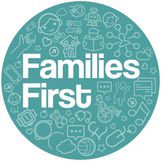Early help is support for children of all ages that improves a family's resilience and outcomes or reduces the chance of a problem getting worse. It is not an individual service, but a system of support delivered by local authorities and their partners working together and taking collective responsibility to provide the right provision in their area.
Working together to Safeguard Children 2023

The Families First Early Help Strategy 2024 to 2027 (PDF) sets out our vision, principles, and priorities for 2024 to 2027. It describes how the partnership will work together to provide responsive and effective support to families in Surrey. It seeks to empower children and their families to overcome difficulties and become increasingly resilient, so they can manage future life challenges independently. Early help is support that is provided as soon as needs emerge. It can be in the critical years of a child's life (including pre-birth and pregnancy) and in later childhood and adolescence.
The Continuum of Support
In Surrey, the approach for helping families early is embedded within the Continuum of Support and the Social Work practice model Family Safeguarding.
If the child or family is not already receiving support, the next step is to work out what type of support they require. Children's needs require different responses. Assessing a child needs ensures they receive the right kind of help. In Surrey, children's needs are assessed though an Early Help Assessment and the appropriate response to their needs considered against the Continuum of Support.
Within this model we have identified five types of support:
Children who consistently receive child focused care giving from their parents or carers. They have their needs met in the communities in which they live, and they have local opportunities to flourish and stay safe from harm.
Children and families adjusting to life circumstances, with mild or temporary difficulties, where the best intervention is within their community network with the possible addition of self-support.
Children who may be vulnerable and showing early signs of abuse and neglect; their needs are not clear, not known or are not being met.
Children who are struggling to cope, this might include children and families with a range of overlapping needs that mean they may require greater input as they have multiple interconnected needs and need a coordinated targeted response.
Children are likely to have already experienced adverse effects and who are suffering or are likely to suffer significant harm, leading to poor outcomes.
Early help assessments and plans
Typically, the first step when receiving Targeted Support is for an Early Help Assessment to be completed. This will help you and those working with you to identify your family's strengths and what you would like to be different. It also acts as a summary of your family situation, so you don't have to keep repeating yourself to practitioners.
Practitioners carrying out an Early Help Assessment can also refer to the Early Help Assessment practitioner guidance (PDF).
A plan is then put together using this information to help you achieve the changes you want to make; this is called an Early Help Plan. Other information may also be added, for example if your child has a SEND Support Plan. You will be involved in writing this plan and where appropriate your child or young person will be involved as well. It will be regularly reviewed to ensure services are offering the right support and that you are making progress towards your goals.
What do families say about the early help assessment?
- "Don't be afraid to ask for help"
- "It can help children of all ages"
- "I felt listened to and understood"
- "It makes people aware that you need some extra help"
What is a Team Around the Family (TAF) meeting?
A TAF meeting brings together you and all the practitioners working with you so that your Early Help Plan can be reviewed. Things that have gone well can be celebrated and changes can be made where things aren't working as well. These meetings are to make sure you are getting the support that you need to achieve the goals you have set for you and your family. If it is helpful for you, your wider family and friends and any others that are part of your own network of support can be invited.
Our One minute guides to Early Help and Children's Services web page has further details of what to expect from these meetings.
Family Information Service
Most children and families will be able to access local and community universal services and are encouraged to make use of the Family Information Service to identify services that may be able to support them and the needs of their children.
Any practitioner, child or family member can directly access the Family Information Service on the Surrey County Council Website. This directory provides a detailed list of a variety of services that are available in the community by typing in a keyword search. Details of the services in Surrey for children with Additional Educational Needs and Disabilities are available to view as part of the Surrey County Council's Local Offer.
There are a wide range of services available across Surrey to assist school-based staff, wider services, and partners in supporting the needs of children and families. This Surrey Support Map at Healthy Surrey provides signposting to some of the key services, placing them at an early point of contact strengthening a preventative approach.
Files available to download
-
Surrey Early Help Assessment Form (MS Word)
Assessment tool to discuss and record the family's needs, strengths and goals -
Early Help Assessment practitioner guidance (PDF)
Guidance for practitioners carrying out an early help assessment
